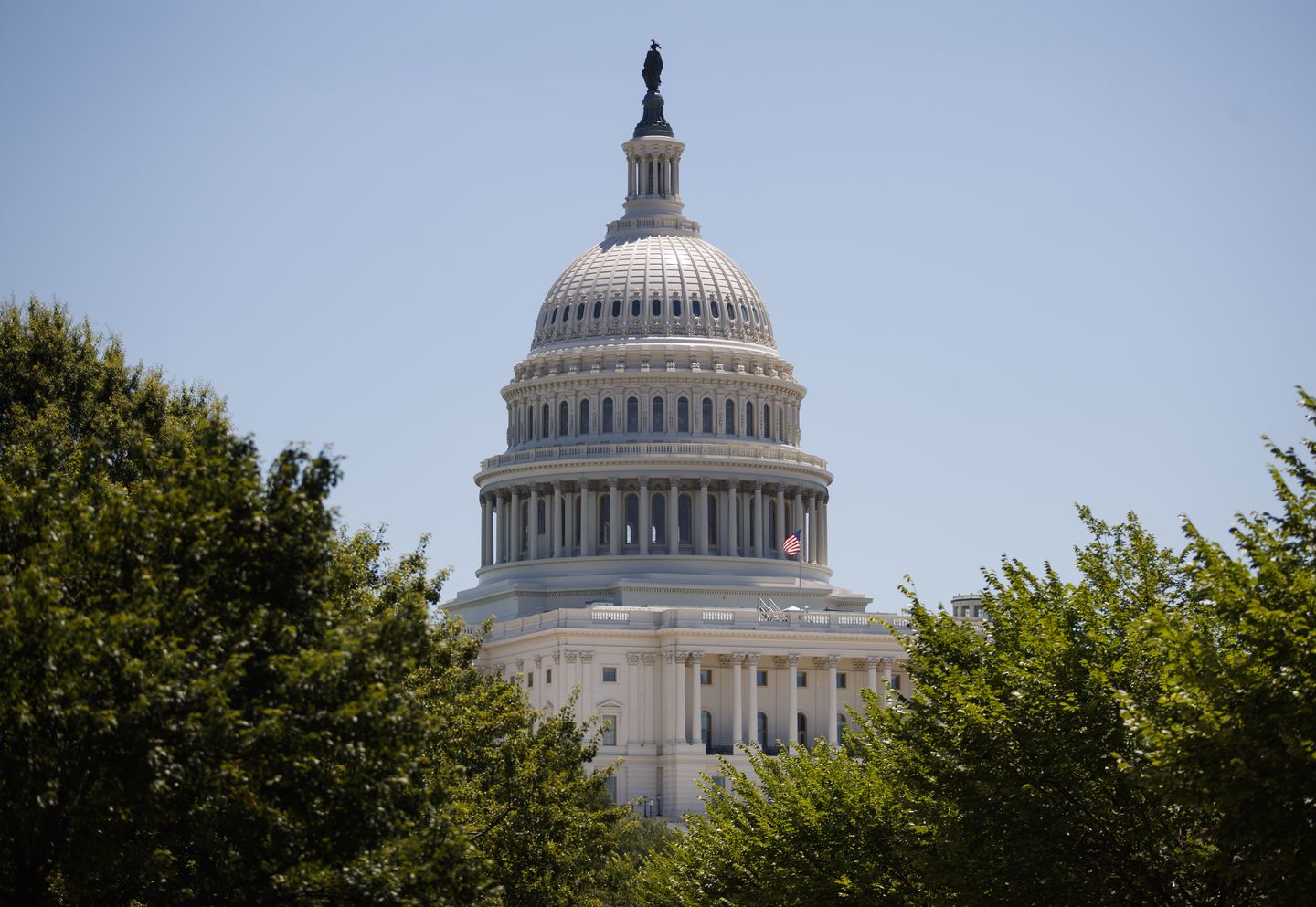
President Trump said Friday that he’s willing to give Congress more time to pass his “big, beautiful bill” but would still prefer they send it to his desk by July 4.
“‘It’s not the end-all,” the president said of the July 4 target. “We can go longer, but we’d like to get it done by that time, if possible.”
Mr. Trump’s softening of the July 4 deadline provides an opening for Senate Republicans to take more time to perfect the bill. They’ve been working on rewrites all week to satisfy a wide array of concerns from within their conference and to bring myriad provisions into compliance with the chamber’s rules.
Both tasks are taking more time than Senate Republicans anticipated, although GOP leaders are hoping to start voting on the bill as soon as this weekend.
Senate Majority Leader John Thune, South Dakota Republican, and House Speaker Mike Johnson, Louisiana Republican, met with Mr. Trump in the Oval Office on Thursday evening to discuss the status of the bill.
“We are very, very close,” Mr. Johnson said. “Leader Thune has confidence that [the Senate] could get the job done by this weekend, and we certainly are hopeful for that. We would still like to meet that July 4 self-imposed deadline. And the president likes that idea.”
The House passed its version of the bill late last month but will need to vote again on any Senate changes before the bill can reach Mr. Trump’s desk.
Mr. Trump’s comments about the July 4 deadline came at a news conference in response to a reporter’s question about Sen. Ron Johnson, Wisconsin Republican, saying he wants to get to “yes” on the bill but needs more time.
Mr. Trump said Mr. Johnson is a “good man” and praised him and other GOP senators for their work on the bill.
“Every Republican senator is committed,” he said. “You could have a couple of grandstanders, in all fairness. You could have somebody else, and it’s very dangerous, because our country would go from being the most successful country in the world to, who knows what happens with a 68% – think of it — a 68% tax increase.”
Mr. Trump was referring to the lower individual tax rates and other tax cuts enacted during his first term that are set to expire at the end of the year, absent congressional action.
Several Republican senators besides Mr. Johnson are not yet ready to support the legislation.
Mr. Johnson and fellow fiscal hawks, Sens. Mike Lee of Utah and Rick Scott of Florida, are concerned about the deficit impact of the measure and are pushing for additional spending cuts, like changes to Medicaid and speeding up repeal of clean energy tax credits from President Biden’s Inflation Reduction Act.
Another group of Republicans, including Sens. Josh Hawley of Missouri, Susan Collins of Maine, Bill Cassidy of Louisiana and Jim Justice of West Virginia, are opposed to a Senate crackdown on provider taxes.
The Senate proposal would effectively force states to lower rates to 3.5% by 2031 if they want to continue using the revenue to pay for more Medicaid spending that the federal government will reimburse at a 90% rate.
The senators who oppose it generally prefer the House approach, which would freeze state provider taxes at current rates.
Mr. Trump has told some of them privately that he prefers the House version. The president did not address that issue at his news conference Friday, but he alluded to senators with specific pet issues they are working through.
“Look, we have a lot of very committed people, and they feel very strongly about a subject, subjects that you’re not even thinking about that are important to Republicans,” he said.
Republicans are also working on rewriting sections of the bill that the Senate parliamentarian, the chamber’s nonpartisan rules referee, has said do not comply with the rules for budget reconciliation, the filibuster-proof process the GOP is using to advance the legislation.
The parliamentarian has ruled against the Senate’s provider tax crackdown — although Republicans insist that only requires a minor technical tweak to be brought into compliance — and a handful of other Medicaid provisions that collectively are worth $250 billion in savings in the bill.
“The parliamentarian has been a little difficult,” Mr. Trump said. “And I would say that I disagree with the parliamentarian on some things, and in other ways, she’s been fine. But we’ll have to see. It’s a big issue.”








